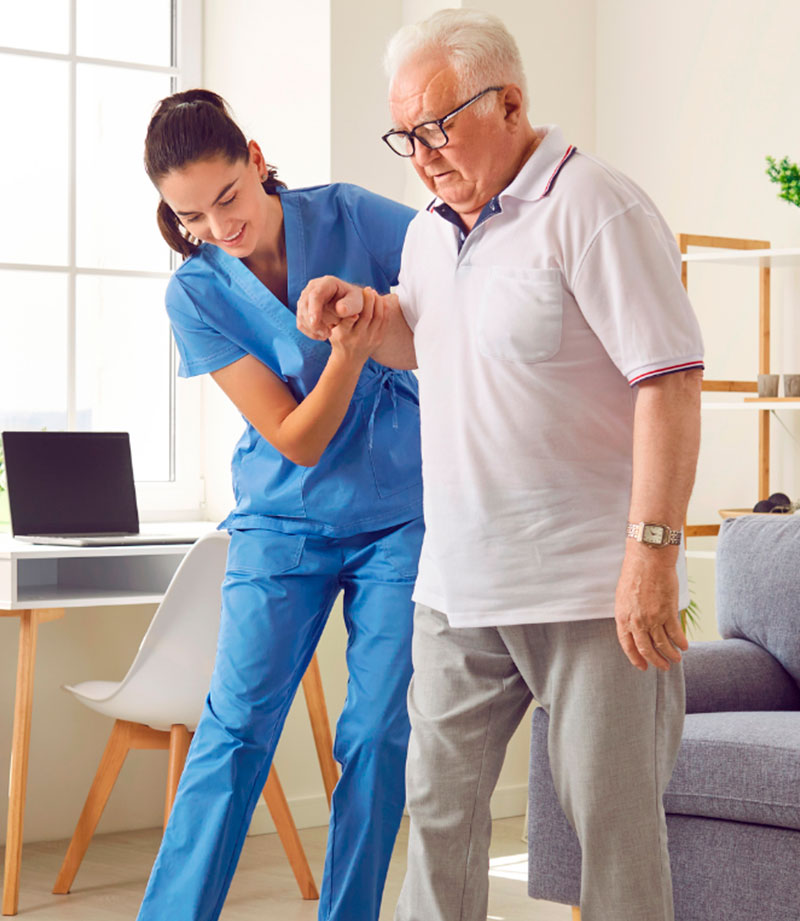Occupational Therapy
Support to Enhance Daily Life Independence
Occupational Therapy – Regain Your Independence in Daily Life
Our In-Home Occupational Therapy service helps patients regain essential daily life skills, autonomy and improving quality of life. Through a personalized and therapeutic approach, our licensed occupational therapistswork with each patient to strengthen motor, cognitive, and functional abilities in a familiar and secure environment.
Ideal for individuals who have experienced a decline in their ability to perform daily tasks due to injuries, surgeries, neurological disorders, or aging.
Benefits of In-Home Occupational Therapy
- Post-Stroke (CVA) or Neurological Rehabilitation – Improves motor control, coordination, and strength to facilitate the use of hands and arms.
- Training in Activities of Daily Living (ADLs) – Assistance with bathing, dressing, eating, utensil use, and other essential tasks.
- Balance and Coordination Improvement – Fall prevention training and safe mobility practices at home.
- Home Adaptation and Safety Recommendations – Assessment of the home environment to minimize risks and enhance accessibility.
- Assistive Device Training – Instruction on using wheelchairs, orthotics, adapted utensils, and other assistive tools.
- Hand and Arm Strength & Dexterity Therapy – Specialized techniques to restore upper limb function.
- Pain and Fatigue Management Strategies – Methods to reduce physical strain and improve energy during daily activities.
- Cognitive and Emotional Support – Techniques to enhance memory, decision-making, and problem-solving skills.

